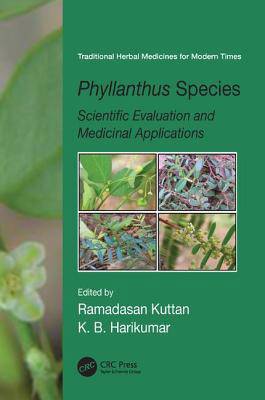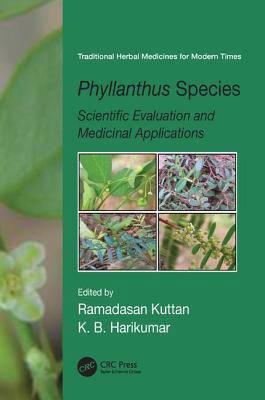
- Retrait gratuit dans votre magasin Club
- 7.000.000 titres dans notre catalogue
- Payer en toute sécurité
- Toujours un magasin près de chez vous
- Retrait gratuit dans votre magasin Club
- 7.000.0000 titres dans notre catalogue
- Payer en toute sécurité
- Toujours un magasin près de chez vous
Phyllanthus Species
Scientific Evaluation and Medicinal Applications
Description
The genus Phyllanthus has over 1,000 species distributed worldwide, many of which have been used indigenously for the treatment of a variety of ailments for generations. Researchers have developed ways to analyze the potential of these plants and demonstrated the pharmacological action and various chemical entities present in each of them. They have validated the folklore claims and used this knowledge to design cost-effective and reliable sources of medicine.
The first book to exclusively examine the genus Phyllanthus, Phyllanthus Species: Scientific Evaluation and Medicinal Applications begins with a systematic classification and identification manual for various plants in the genus, followed by the scientific evaluation of the species for modern medicinal use. This reference compiles cutting edge research from countries around the world, including the UK, Malaysia, India, Indonesia, Spain, Cuba, and China. Topics covered include phylogenetic analysis of Phyllanthus, chemistry of the genus, anti-cancer, anti-diabetic and chemo- protective effects, genotoxicity, clinical trials involving Phyllanthus, and various formulations containing different plants from the genus Phyllanthus.
Phyllanthus Species: Scientific Evaluation and Medicinal Applications describes in detail the taxonomy, cultivation, and marketing, identification of geographic and genetic hot spots, chemistry, scientific evaluation, and clinical trials of various species of Phyllanthus. Written for researchers and educators in academia, industry, agriculture, and the interested general public, this book's up-to-date references make it a powerful resource providing first-hand information on Phyllanthus.
Spécifications
Parties prenantes
- Editeur:
Contenu
- Nombre de pages :
- 392
- Langue:
- Anglais
- Collection :
Caractéristiques
- EAN:
- 9781138112537
- Date de parution :
- 31-05-17
- Format:
- Livre broché
- Format numérique:
- Trade paperback (VS)
- Dimensions :
- 156 mm x 234 mm
- Poids :
- 548 g

Les avis
Nous publions uniquement les avis qui respectent les conditions requises. Consultez nos conditions pour les avis.





